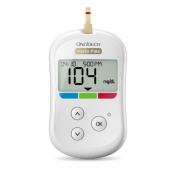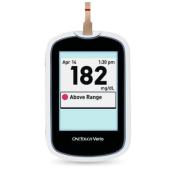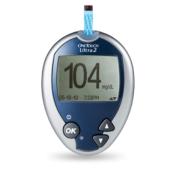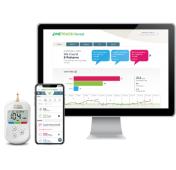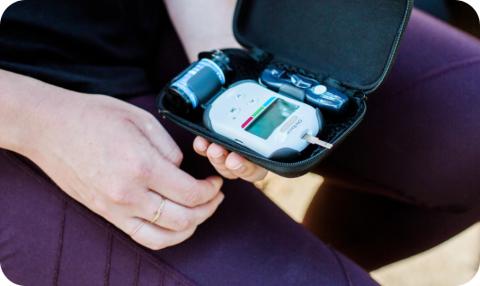Gestational Diabetes

What causes gestational diabetes?
Doctors don't know exactly what causes gestational diabetes, but they have some clues.
The placenta supports and feeds your baby as it grows. Hormones from the placenta help the baby develop, but the production of these hormones also diminish the action of insulin. Gestational diabetes starts when your body is no longer able to make and use all the insulin it needs for pregnancy, resulting in high levels of glucose in the blood if not controlled.
Some women are at higher risk of developing gestational diabetes, including those:
- overweight before pregnancy (BMI of 30 or higher)
- who gain too much weight during pregnancy (more than the recommended weight gain)
- older than 25 years
- with a history of gestational diabetes
- with a family history of diabetes
- of African‐American, Asian, Hispanic or Native American descent
How is gestational diabetes diagnosed?
Most women receiving good prenatal care are routinely tested for gestational diabetes between weeks 24‐28 of their pregnancies. If you are at high risk of developing gestational diabetes, your doctor may check earlier and/or more than once during your pregnancy.
The test for gestational diabetes involves drinking a sweet drink provided by your doctor and having blood tests taken before and after the drink. If the results show that your blood glucose levels are higher than the recommended cut off limits at the specified times, a diagnosis of gestational diabetes is confirmed. Your doctor will talk to you about a treatment plan for gestational diabetes.
Why is it important to treat gestational diabetes?
As a mom, your instinct is to protect your child. It’s important to treat gestational diabetes as soon as it is diagnosed for your health and your baby’s health. If gestational diabetes is untreated, problems can occur. These include:
- An increased chance of delivering a large baby weighing more than 9 pounds (4 kg), a condition known as macrosomia. This increases the chance of:
- difficulty and injury during vaginal birth, and
- a cesarean section (C‐section)
- A high risk for pre‐term birth and breathing problems (respiratory distress) for your baby
- A high risk for low blood sugar (hypoglycemia) in your baby soon after delivery
- A higher chance of preeclampsia and high blood pressure for you
Following your doctor’s care plan and managing your gestational diabetes carefully can help greatly reduce the risk of developing these complications.
What can you expect when diagnosed with gestational diabetes?
If you are diagnosed with gestational diabetes:
- Your doctor will recommend a healthy, carbohydrate‐controlled diet and exercise. In many cases, these steps will be enough to manage your blood glucose levels for the rest of your pregnancy.
- You may need to work with a registered dietitian to create a healthy eating plan. The dietitian can teach you how to manage the amount and types of carbohydrates you eat to help control your blood glucose levels while still meeting your pregnancy needs. You may also be asked to keep a food journal and track your weight.
- You may need to check your blood glucose daily at home, using a blood glucose meter. Ask your doctor or diabetes educator to recommend a blood glucose meter that is right for you. Testing and tracking your blood glucose will help you and your healthcare professionals manage your gestational diabetes.
- It is common to have to check your blood glucose four or more times a day, usually fasting and then 1 to 2 hours after meals. Your doctor or health care professional will tell you how often to test and your blood glucose target range. Don’t forget to keep a record of your blood glucose tests, including when you test, what your result is, and whether it was before or after eating, including how long after eating.
- Gentle exercise during pregnancy will help your body use its own insulin better and help control your blood glucose levels. Types of exercises pregnant women can safely enjoy, include brisk walking and swimming. Talk to your health care professionals and get guidance for safe exercise with pregnancy.
At your obstetrician visits, your blood pressure and urine may be checked. You will also discuss your blood glucose test results with your doctor, as well as what you have been eating, how much you have been exercising, and how much weight you have gained. Your growing baby will also be monitored closely. All of this will help determine if the treatment plan for gestational diabetes is working and when changes may be needed.
If changing your eating plan and adding exercise do not keep your blood glucose levels in check, your doctor may recommend diabetes medicines: pills or insulin, for the rest of your pregnancy.
Taking medications (tablets/pills, insulin)
If your doctor prescribes pills or insulin, keep in mind that it’s not a sign that you’ve failed to manage your gestational diabetes. In some cases, your body may simply not be able to make enough insulin on its own to handle what your body needs as the baby grows. It’s important to follow your doctor’s recommendations to protect both you and your baby. Once you’ve given birth, chances are you will no longer need to take the diabetes medicine.
If your doctor prescribes insulin for your gestational diabetes, it means taking it by injection or other device such as an insulin pump. A family member can learn how to do this with you and help you take your insulin as prescribed. The good news is that today, the small, thin needles made for taking insulin help make the injections virtually painless. Your doctor will tell you when to take your insulin, how much to take each time and may make changes to the dose during the remaining course of your pregnancy.
Sources:
IDF Diabetes Atlas (8th Ed.) (2017). International Diabetes Federation: Brussels, Belgium. Online version accessed September 9, 2019
Mayo Clinic. Gestational Diabetes Symptoms and Causes. Online version accessed September 9, 2019
Mayo Clinic. Gestational Diabetes Diagnoses and Treatment. Online version accessed September 9, 2019
Related articles
US-VRF-1900004


